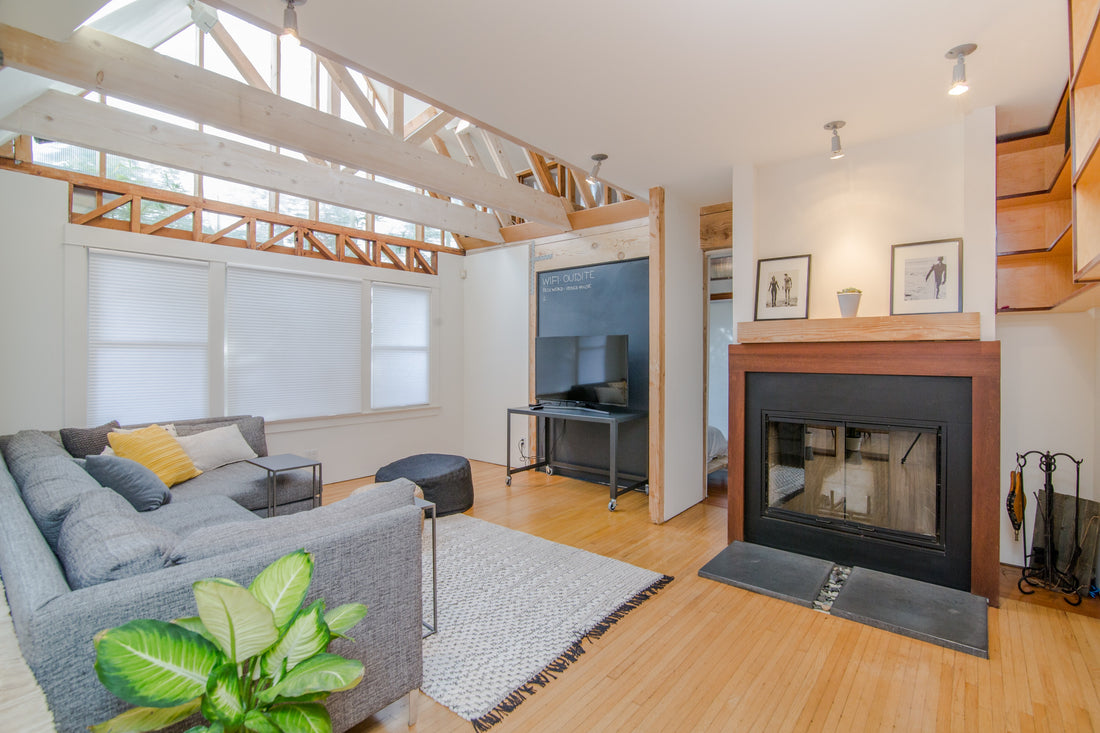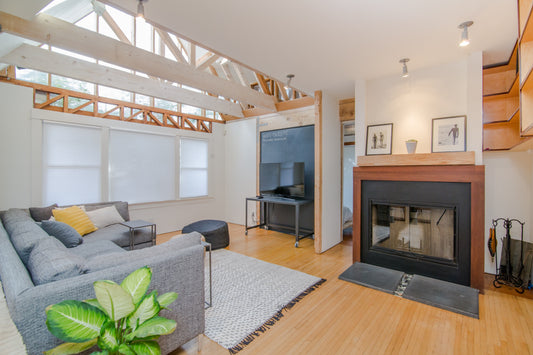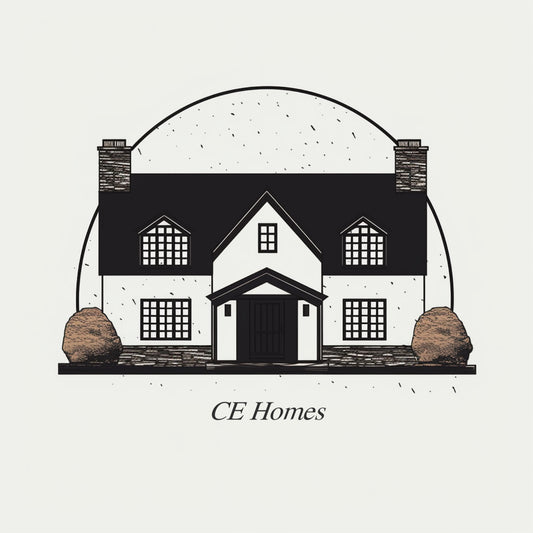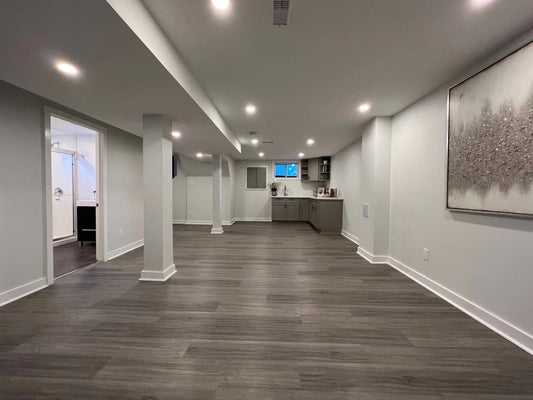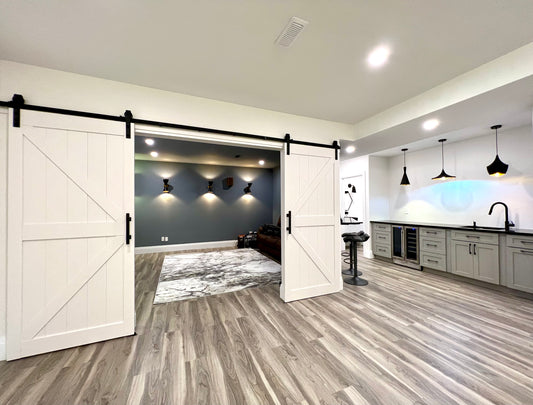Navigating the evolving landscape of Ottawa’s housing sector? Secondary Dwelling Units (SDUs) and Accessory Dwelling Units (ADUs) are making waves as modern solutions to our city's burgeoning housing needs. Dive into our guide and uncover how partnering with CE Homes can simplify this journey.
Deep Dive into Dwelling Units in Ottawa’s Context
In the heart of Ottawa's dynamic housing landscape, the spotlight shines on dwelling units, especially the increasing interest around Secondary Dwelling Units a and the value of in-law suites. For those asking, "Can I build a second dwelling on my property?" - the answe is a resounding yes! With proper permissions and guidelines adherence, these spaces can be a valuable asset
What Are Ottawa's Dwelling Units?
A dwelling unit, is a distinct, self-reliant living space equipped with amenities like kitchens and bathrooms. These units are more than just rooms; they're solutions tailored for the city's contemporary housing needs.

Photo via Marda Management
The Appeal of Secondary Dwelling Units (SDUs) in Ottawa
As the city expands, SDUs serve a dual purpose:
Rental Opportunities: Given the surge in searches for affordable Ottawa rental housing, SDUs offer homeowners a chance at supplemental income, acting as a financial safety net.
Family Living: Beyond just income, SDUs answer the growing query for family-friendly dwelling spaces in Ottawa, allowing families to live closely yet retain personal space.
In-law Suites: A Boom for Ottawa's Families
More than just a trend, in-law suites in Ottawa cater to the city's aging populace. Designed with accessibility in mind, these suites serve families wishing to keep aging members close but with an essence of independence.
SDUs, In-law Suites, and Ottawa’s Affordable Housing Initiative
With the city's endorsement of SDUs and in-law suites, they've become essential cogs in Ottawa's affordable housing plan. The initiative sees these units as a way to enhance housing options without major architectural shifts.
Crafting Your Vision with CE Homes
For those intrigued by the prospect of adding an SDU or in-law suite in their Ottawa property, CE Homes emerges as the trusted partner. Specializing in Ottawa housing regulations and designs, CE Homes delivers bespoke solutions, turning your dwelling unit dream into a tangible reality.
Benefits of a Secondary Dwelling Unit in Ottawa
Ottawa, as the bustling capital of Canada, offers a unique urban landscape that's seeing a surge in housing demands. Integrating a secondary dwelling unit into your property can bring numerous advantages:
- Financial Prosperity: An opportunity to consistently generate rental income.
- Elevated Property Worth: Homes equipped with SDUs in Ottawa are a hot commodity and tend to secure higher market prices.
- Versatile Housing Solutions: An exemplary solution for households that span multiple generations.
- Contribution to Affordable Housing: Address and combat Ottawa's spiraling housing demand.
- Optimal Utilization: Transmute unused spaces into functional and aesthetic areas.
What is an Accessory Dwelling Unit?
An Accessory Dwelling Unit (ADU) is an independent housing structure that shares the same land as the primary residence. It can be either attached (like a converted garage or basement) or detached (a separate backyard cottage). Designed to be self-sufficient, it typically comes with its own kitchen, bathroom, and sleeping area.
Secondary vs. Accessory Dwelling Units
While often used interchangeably, there are subtle distinctions and commonalities between ADUs and Secondary Dwelling Units:
- Definition & Terminology: In many contexts, an ADU is the same as a secondary dwelling unit. However, the term "secondary dwelling unit" is more commonly used in Ottawa and some parts of Ontario.
- Purpose & Utility: Both aim to provide additional living spaces on the same property. Whether for rental income or family use, their primary purpose remains consistent.
- Regulations: Depending on the region, the guidelines for establishing these units might differ. In places like Ontario, there are specific regulations surrounding secondary dwelling units.
- Construction & Design: Both ADUs and secondary dwelling units can vary widely in design. From basement conversions to loft spaces or separate cottages, the possibilities are expansive.
In essence, while the terminology might differ, the core concept of providing an additional, independent living space on one's property remains central to both ADUs and secondary dwelling units.
Permits and Regulations
Understanding the regulatory landscape is crucial when considering the addition of a secondary or accessory dwelling unit to your property. An Accessory Dwelling Unit (ADU) permit is required to ensure that your ADU complies with local zoning laws and building codes. This permit is pivotal in maintaining the safety standards and ensuring that your unit is legally recognized. Keep in mind that each municipality might have slightly different requirements and processes, so it's imperative to consult with local authorities or a professional familiar with Ottawa's regulations.
Secondary Suite Grant Program Ontario
The province of Ontario recognizes the value of secondary dwelling units in alleviating housing shortages and providing affordable housing options. The
Secondary Suite Grant Program in Ontario assists homeowners in creating secondary suites within their residences. By availing of this program, homeowners can get financial assistance to offset the costs of constructing and legally registering a secondary suite. Whether you're looking to leverage an underutilized space for added income or provide a cozy dwelling for a family member.
Ottawa-Specific Guidelines for Secondary Dwelling Units
Understanding local regulations is crucial when considering the addition of a secondary dwelling unit in Ottawa. Here are some specific rules you need to be aware of:
Size and Area Limitations
- A secondary dwelling unit can occupy no more than 40% of the principal dwelling's gross floor area. The only exception is basement units, where there's no size limit.
Access and Entrances
- Every secondary unit should have a separate ground floor access from the primary dwelling unless building or fire codes dictate otherwise.
- Avoid adding a new doorway entrance in the dwelling's front wall. However, a shared internal lobby or entrance hall in the front yard’s exterior wall is permissible.
Parking Considerations
- Introducing a secondary dwelling unit shouldn't eliminate the mandatory parking space for the main dwelling.
- There's no requirement for additional parking spots. But if one is provided, it shouldn't be in the front yard. Corner lot properties without a pre-existing driveway can have a new parking space. Sharing the existing driveway's parking is allowed.
Other Key Regulations
- The new unit must remain on the same lot as the primary dwelling and should maintain the existing streetscape character.
- You can have one unit in a detached dwelling, one in each half of a semi-detached building, and only one for an entire duplex dwelling.
Delving into Bylaws
For an in-depth understanding, the entire bylaw is available in Part 5- Residential Provisions, section 133- Secondary Dwelling Units on the City's website under "Adding an Apartment". If your property is in an exception area or the zoning bylaw prohibits a secondary dwelling, you may need a Zoning By-law Amendment or rezoning. The complete rezoning process is accessible on the City of Ottawa website.
Embarking on Your SDU Journey? Ensure Compliance First
Before any construction, ensure you acquire a building permit. This requires completing an application form, paying the associated fee, and submitting two detailed, legible sets of plans drawn to scale.
Can I Build a Second Dwelling on My Property?
The ability to build a second dwelling on your property primarily depends on local zoning bylaws and the size of your lot. In Ottawa, many residential zones allow for secondary or accessory dwelling units, but there are specific criteria that must be met. Factors such as property setbacks, parking, and unit size can influence the feasibility of your project. Before commencing any construction, it's crucial to get clarity on zoning requirements and obtain the necessary permits to ensure your project's legality and success.
Final Thoughts: Is an SDU Right for Your Ottawa Property?
Pioneering a secondary dwelling unit in Ottawa isn't just about additional space. It's about redefining urban living, optimizing property value, and aligning with contemporary housing trends. Ready to embark on this transformative journey? Book an estimate with CE Homes today and let us drive your vision to fruition, enhancing the essence of your Ottawa residence.

